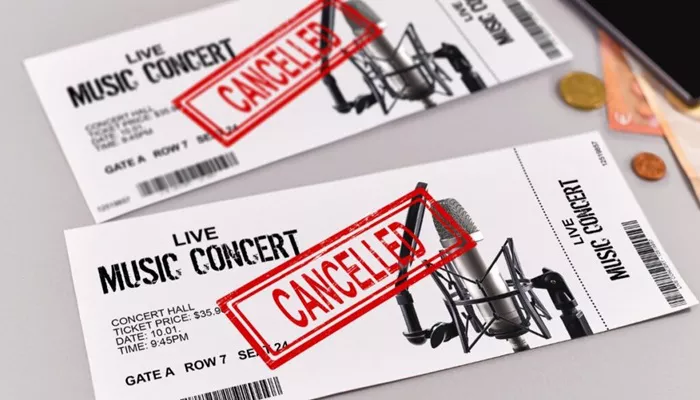Attending a live concert is an exciting experience. But the rise of fake concert tickets has made it harder for fans to enjoy shows without worry. Scammers exploit high-demand events to sell counterfeit tickets. Whether you buy from official sites, resellers, or third parties, it’s important to verify ticket authenticity. Knowing how to tell if concert tickets are real helps avoid disappointment, financial loss, and ruined plans.
Common Ways Scammers Sell Fake Concert Tickets
Unverified Third-Party Websites
Many fake tickets are sold on unofficial websites. These sites may look legitimate but are designed to deceive. They may have stolen branding, fake customer reviews, and urgent messages to pressure fast purchases. Always verify that the site is authorized to sell concert tickets. Stick with platforms like Ticketmaster or Live Nation.
Social Media Scams
Scammers often use Facebook Marketplace, Twitter, or Instagram to sell fake concert tickets. They post last-minute deals, use stolen images, and create fake urgency. Many disappear after payment. If you must buy tickets through social media, ask for proof of purchase and use payment methods with buyer protection.
Email and Text Message Phishing
Some scammers send fake ticket confirmations via email or SMS. These messages mimic real companies, but the links lead to fake checkout pages. Do not click links in unsolicited emails. Go directly to the official concert ticket provider’s website to confirm authenticity.
Key Indicators of Real vs. Fake Concert Tickets
Check the Ticket Format
Real concert tickets have specific layouts. For paper tickets, look for:
- High-quality printing
- Holograms or watermarks
- Barcodes or QR codes
- Perforated edges (if required)
For digital tickets, ensure they are accessible through an official app like Ticketmaster or AXS. Screenshots or PDFs can be suspicious if the event requires app-based scanning.
Inspect the Ticket Details
Make sure all ticket information is correct and clear:
- Event name and venue
- Date and time
- Seat number and section
- Ticket price and purchase reference
Compare these details with the official event listing. Errors or missing information may indicate a fake ticket.
Check the Barcode or QR Code
Most venues use scanners to validate tickets. If the barcode or QR code is blurry, distorted, or identical to another ticket, it’s likely fake. A real ticket will have a unique code for entry.
Where to Buy Real Concert Tickets
Official Event Websites
The safest way to buy real concert tickets is through the event’s official site. These often redirect to verified sellers like Ticketmaster or AXS. You’ll receive confirmation, digital tracking, and customer support.
Reputable Ticket Sellers
These companies have systems to protect buyers:
- StubHub – Offers FanProtect Guarantee
- Vivid Seats – Provides a buyer protection plan
- SeatGeek – Verifies tickets through scanning technology
These platforms have support options and refund policies in case of fraud.
Venue Box Offices
Buying directly from the concert venue is reliable. It eliminates third-party risk. Some venues also provide will-call options, where tickets are held at the box office until showtime.
Red Flags When Buying Concert Tickets
Too Good to Be True Prices
If ticket prices are far below market value, be cautious. Scammers lure buyers with “discount” rates. Always compare pricing with official sources.
Vague Seller Information
Legitimate sellers provide full contact info, ticket policies, and order confirmations. Avoid sellers who communicate only via text or social media and won’t give their full name or details.
Unusual Payment Requests
Be wary if asked to pay via gift cards, wire transfers, or cryptocurrency. These are hard to trace and offer no protection. Use credit cards or PayPal for added security.
How to Confirm a Ticket’s Authenticity
Contact the Issuer
If you’re unsure about a ticket, contact the ticket provider (e.g., Ticketmaster, AXS). Provide the ticket number or order ID.
They can confirm whether it’s valid and not duplicated.
Use the Official App
Most big venues use apps that verify ticket legitimacy. Download the concert’s ticketing partner app. Log in and see if your ticket is listed. If not, it could be fake.
Go to the Venue Early
If you’re still unsure, arrive at the venue early and check with the box office. They can scan your ticket and let you know if it’s valid.
Tips for Safe Concert Ticket Purchases
Buy Early
Fraud risks increase closer to the event date. Buying early from official sources reduces pressure and helps ensure ticket authenticity.
Use Secure Payment Methods
Use credit cards or verified platforms with fraud protection. Avoid cash payments or Venmo transactions with strangers.
Double-Check Event Details
Always check the official event schedule. Fake listings sometimes reference non-existent dates or venues.
What to Do If You Buy a Fake Ticket
Report the Fraud
Contact the ticket platform or payment service immediately. Report the fraud to the Federal Trade Commission (FTC) or local consumer protection agency.
Dispute the Charge
If you used a credit card, call your bank to dispute the transaction. They may reverse the charge after investigation.
Warn Others
Leave reviews or comments warning others. Share your experience on ticket forums to raise awareness and help prevent more scams.
Digital vs. Physical Concert Tickets
Digital Tickets
Digital tickets are becoming the norm. They are easier to verify and less prone to tampering. These tickets are stored in apps or your email. Some use rotating barcodes to prevent screenshots from being resold.
Physical Tickets
Physical tickets are still in use for certain events or older venues. While collectible, they are easier to fake. Be cautious if buying from non-official sources. Look for security features such as watermarks, holograms, and thermal printing.
Conclusion
Concert tickets are your passport to live music experiences. Verifying their authenticity is essential for peace of mind. Always purchase through trusted sources, check the details, and use secure payments. If a deal feels suspicious, trust your instincts. Learning how to tell if concert tickets are real protects your investment and ensures your night is filled with music—not regret.

